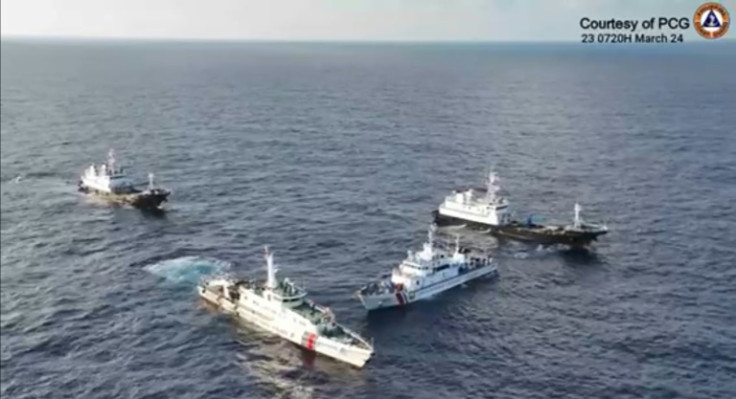Australia, Indonesia Ink Defense Treaty, Marles Denies Pact Aimed At Countering China

Australian Defense Minister Richard Marles has called the newly signed treaty with Indonesia "an important piece of international architecture," saying it will ensure better security for both nations, while rebuffing claims that the move was aimed at countering China.
Marles was in Central Java on Thursday signing The Defense Cooperation Agreement with Indonesia's President-elect and defense minister, Prabowo Subianto, at the Indonesian National Military Academy in Magelang, the Associated Press reported.
The treaty proposes a bilateral joint military exercise, the largest in Australia's overseas history, to be held in November.
As Australia sought to solidify Jakarta as its key ally in the face of rising regional tensions with China, Marles emphasized in a press release that the pact seeks to "bolster the strong defense ties" between both nations by "enhancing practical arrangements, strengthening interoperability and supporting increased dialogue," per Sky News.
When asked by Sky News Australia's chief news anchor Kieran Gilbert whether the pact was made while keeping China in mind, the Defense Minister said, "No. ... This is fundamentally about Australia and Indonesia."
He went on to stress that this pact came about as both nations came to a "moment in time" where they both saw how each nation's "security lies in each other."
"Any independent observer looking at the map could understand that we do have a shared destiny inevitably and what we need to be doing as two countries is to make sure that is a positive shared destiny where we are drawing our security from each other," Marles said.
The two countries will join forces to bolster military training and reinforce maritime security, which, according to Marles, will boost Australia's security while respecting Indonesia's independent stance in regional affairs.
"This agreement will make Australians safer, it will make Indonesians safer," he told Sky News. "This is not an alliance and Indonesia has a very strong tradition of non-alignment and ... we not only recognise that but like the fact that we have Indonesia there which has very strong principles of non-alignment."
The pact respects Indonesia's independent stance in regional affairs, while also allowing for cooperation with other nations, including the US, China, and Australia.
© Copyright 2025 IBTimes AU. All rights reserved.





















